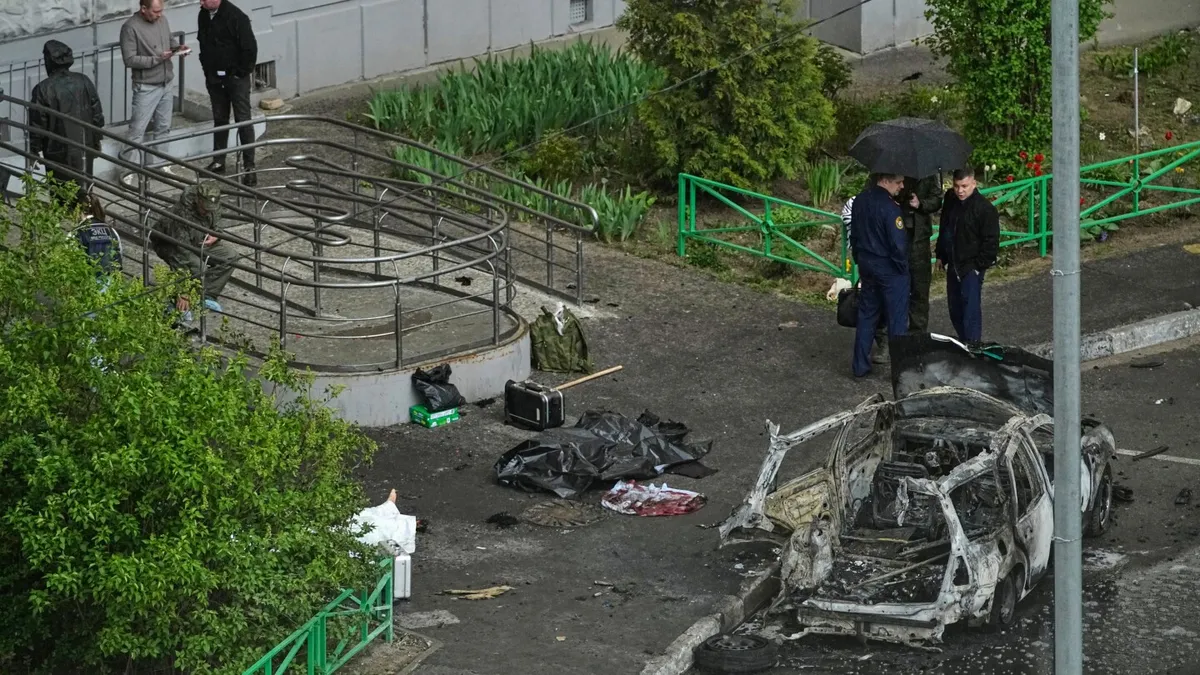
A shocking incident occurred in Balashikha, just outside Moscow, where a Russian general was killed by a car bomb on Friday, as confirmed by Russia’s top criminal investigation agency. This tragic event marks the second attack on a high-ranking Russian military officer within a mere four months, raising serious concerns about security and stability in the region.
The Investigative Committee of Russia reported that the victim, Lt. Gen. Yaroslav Moskalik, served as the deputy head of the main operational department in the General Staff of the Russian armed forces. His life was cut short when an explosive device, which was reportedly rigged with shrapnel, detonated in his vehicle. Svetlana Petrenko, a spokesperson for the committee, stated that investigators were promptly dispatched to the scene to gather evidence and assess the situation.
Following the explosion, Russian media outlets broadcast videos showing a vehicle engulfed in flames within the courtyard of an apartment building, highlighting the devastating impact of the attack. However, the Investigative Committee has not released any information regarding potential suspects, leaving the public and analysts speculating about the motives behind this violent act.
Maria Zakharova, spokesperson for the Russian Foreign Ministry, condemned the attack, labeling it a “terror attack.” This assertion underscores the heightened tensions in Russia following a series of assaults on military figures. The attack on Moskalik follows the killing of another general, Lt. Gen. Igor Kirillov, on December 17. Kirillov was killed when a bomb concealed on an electric scooter exploded as he left his apartment building, an incident that the Russian authorities attributed to Ukraine. In a rare acknowledgment, Ukraine’s security agency confirmed responsibility for that particular attack.
Lt. Gen. Kirillov held a critical position as the chief of Russia’s Radiation, Biological, and Chemical Protection Forces, a specialized unit responsible for safeguarding military operations against the use of nuclear, chemical, or biological weapons. His death, along with that of his assistant, marked a significant blow to Russia's military leadership and raised alarms about the effectiveness of its security protocols.
The recent string of attacks on high-ranking military officials signals a growing threat to Russia's leadership and may indicate an escalation in hostilities both domestically and internationally. As investigations continue, the implications of these incidents will likely reverberate throughout the Russian military and beyond.